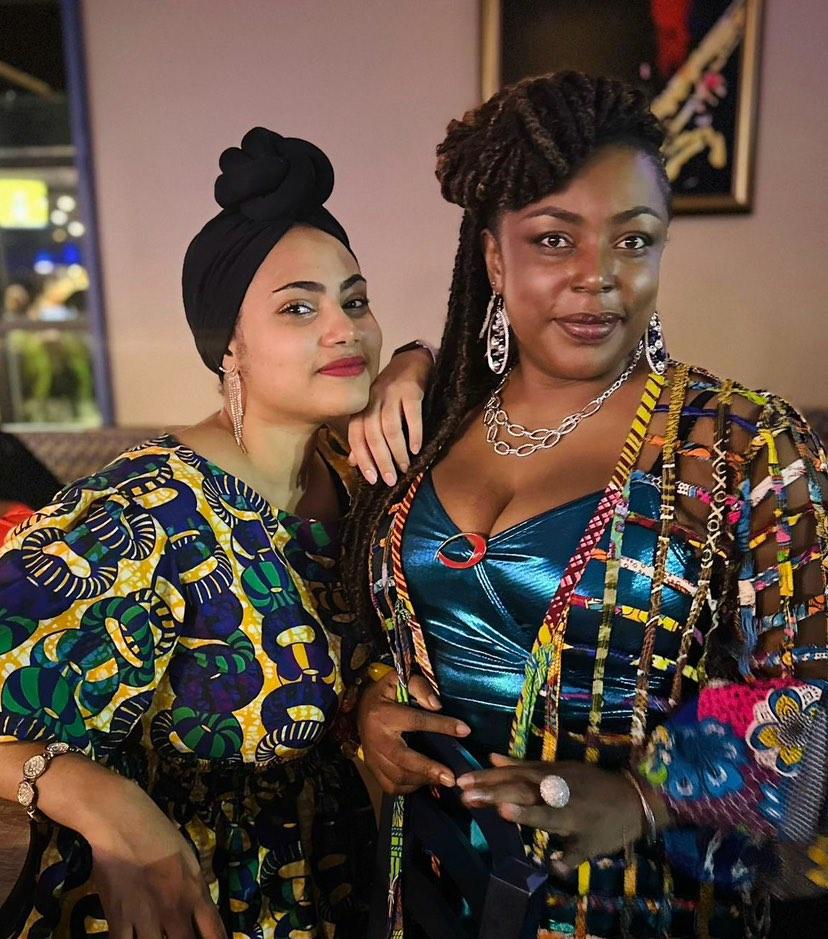
In an inspiring tale of creativity and cultural pride, Anita and Hadia Barakat have transformed their passion for African traditions into a thriving business, Culture Rocks by Nini. Created out of the uncertainty of the pandemic lockdowns, this family-owned venture showcases a rich blend of authentic African and Caribbean clothing, accessories, and cultural artifacts. With roots in Ghana and a mission to reconnect African Americans with their heritage, this mother-daughter duo have not only provided a unique shopping experience but also support charitable initiatives for orphans in Ghana. Their story is a testament to resilience, cultural celebration, and community empowerment.
In an exclusive interview with the nation’s faith-based and professional newspaper for winners, Anointed News Journal, Anita and Hadia explain their love for African culture, and how they are incorporating various forms of fashion from all over the continent of Africa, the Caribbeans, and beyond to create a unique style for people.
Collins II:
Who is Anita Barakat?
Anita:
Thank you for having us. So, Anita Barakat is a mother of two, born and raised in Ghana, West Africa. Many years ago, I migrated to America. I am a missionary, and I bring ideas to life. My personality doesn’t allow ideas to be stuck in my head. I have to express them through writing, artwork, or performance. What else can I say?
Collins II:
And who is Hadia Barakat?
Hadia:
I’m the daughter of Anita. I am a sister to an older brother who is in Ghana. I am a family person, which is why I’m so involved in this family business. I love helping my mom out. I took some time off school to help with the business, to ensure everything is okay and we’re on our feet. I am a creative person. A lot of the creative work here involves executing my mom’s ideas. She envisions, and I bring them to life.
Collins II:
So this store, Culture Rocks by Nini. Firstly, what was the inspiration behind it? You came to America, and then what inspired you to start this?
Anita:
The inspiration for starting this business came to life during the pandemic. Growing up in a family of six, with four sisters, a brother, and myself, our mom had a sewing machine. It’s customary as you go through marriage formalities; your husband is supposed to give you a sewing machine. Not that my mom was a seamstress, but growing up, we played with the sewing machine all the time. Making clothes, adjusting, cutting—if you wore a pair of jeans, you might turn them into shorts. So, I have basic sewing skills. During the lockdown, we were all tired of eating at home and growing fat.
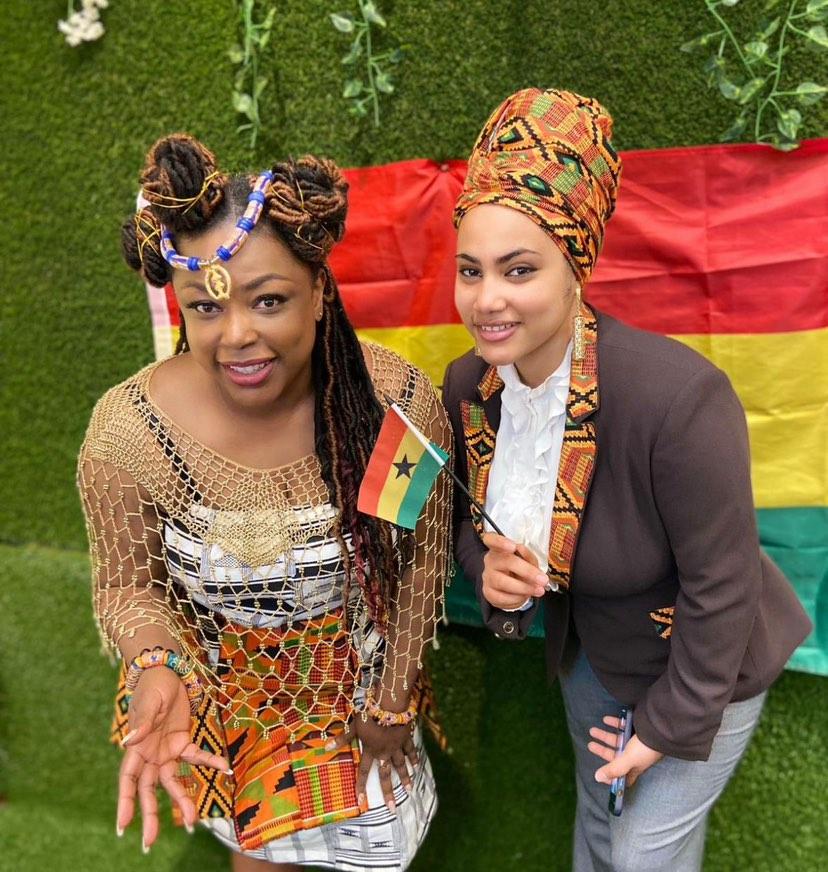
We had pieces of fabric and started making earrings like the ones I’m wearing and T-shirts like the one I have on. It then expanded into other items. I draw it on paper, and she brings it to life. We were so bored at home. Right after the pandemic, we had our first fashion show. We started our trials at the Berlin Farmers Market, testing the market to see how people would receive us. People loved our products, but being out there was tough. So, we checked out Cherry Hill, where we had our first cart. It was a pop-up cart for about six or seven months before Christmas. From there, we aimed to have a place at Cherry Hill, but it’s a long process.
Anita:
And then we found a place at the Gloucester Premium Outlets and brought all our ideas. People come in with different requests: Can you make this for me? Can you do that? We’ll get it done.
Collins II:
So it was a business started during COVID, and the inspiration came from something you were naturally gifted at doing together.
Anita:
Let me add this. Being born and raised in Ghana, I love African culture—especially the outfits, beaded jewelry, face painting, and traditions. Meeting African Americans and even some Caucasian friends here, they come to me for ideas on African traditional culture. When we opened the store, people had all types of requests. They want to go to Ghana, Africa, or they have events and need help. So, a lot of inspiration also came from demands from friends and family.
Collins II:
You gave me a tour, and I saw that many things are handmade and tailored to different sizes. That’s unique about your place. You also have items from other African countries and the Caribbean. Could you touch on the mixture of African culture from other countries and islands?
Hadia:
Yes. When we first started, it was just items from Ghana because we’re from Ghana. It was easier to get things from there. As we expanded, we realized there was a broader interest, and it answered a need in the community. Seeing the diversity of our customers, we broadened our horizon to include items from Nigeria, Kenya, South Africa, and more. We even have customers from South Africa, Morocco, and Egypt offering to bring us items. Embracing the differences within the African culture is important. Africa is a vast place with diverse cultures, fabrics, food, and music. Here, you get a little bit of everything, showcasing that Africa is not just one country but a continent full of rich and varied traditions.
Anita:
And also, to add a touch of the Islanders, we get a lot of Caribbeans—first Jamaicans and then people from other islands. We’ve made friends; they come in because it’s African. They love everything, and they see a way of connecting to their roots through clothing and accessories. The Islanders have slight variations in their fabrics. When they come in, they enlighten us, we research it, and then we make it for them.
Collins II:
That leads to my next question. You talked about people connecting with their culture. I identify as an African American, and I haven’t been to Africa. My ancestors came here in the 1700s or 1800s. I heard you say at Henry’s event that people want to identify with their culture but don’t know how. You guys are helping them do that. Can you explain more about that purpose and passion?
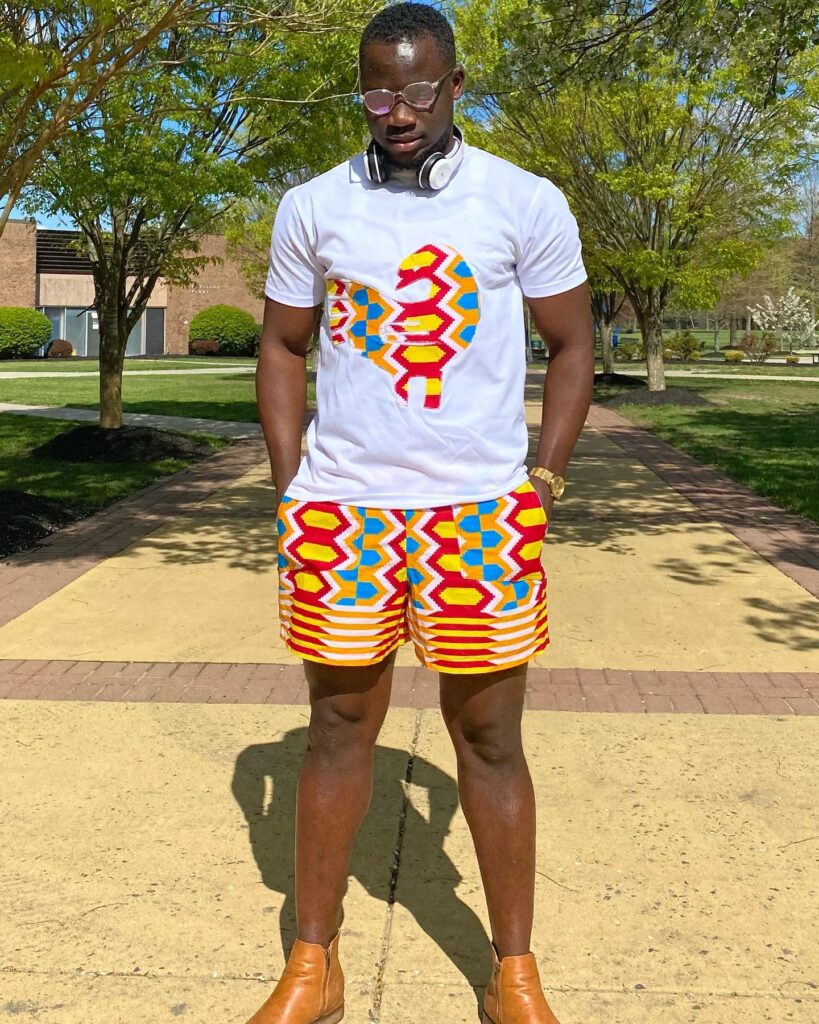
Hadia:
Yes. A big part of our culture is the way we dress. There’s food, music, and many traditions, but clothing is significant. Back home, different types of kente fabric indicate where someone is from. We have specific fabrics for events—funerals, naming ceremonies, etc. Clothing was a big part of our culture, and it remains a major part of people’s identity today. Fashion reflects how people feel and what they identify with. When someone dresses a certain way, it shows what they love and identify with. Clothing helps people embrace their identity and proudly show their roots. This is who I am, and I’m not hiding it. Clothing is a way for us to help people do that.
Anita:
To most people here, especially African Americans, embracing the African culture and tradition is important. But for some, it’s a bit overwhelming—the colors, dressed head to toe. If it’s too much to comprehend all at once, you can start with basic things like accessories. Certain beaded accessories immediately signal Ghana or Kenya. You could also be identified by something like a kufi hat. As soon as you wear a kufi hat, everyone knows it’s African.
Hadia:
Yes, like African kente or other African fabrics. Even footwear as well. What makes us unique from our competitors is our blend to cater to the kind of customers we have. Most of them don’t have the same experience we had growing up. For instance, traditional clothing like kaba and slit is very popular back home, but people here don’t know it. We take the fabric and blend it into something more familiar, so they are comfortable wearing it. We’re not taking away the authenticity of African culture but bridging the gap. A lot of people bring African stuff and try to impose it on people here, but they don’t have that background. It takes time, one step at a time. Whether it’s a top, a bottom, or a skirt, we’ve seen how people are progressively embracing African culture over the past two years.
Collins II:
So what’s next for Culture Rocks by Nini?
Anita:
What’s next? We’re growing. God willing, we will land at the Cherry Hill Mall. But right now we have an online store www.culturerocksbynini.com So yes, we’re growing and moving forward. Most of our raw materials are from Ghana and other parts of Africa. We have tailors and seamstresses back home who make authentic products for us. Gradually, we’re also starting to make more products here. Most of our embroidery shirts are handmade in Ghana, but we plan to start making embroideries here as well.
Hadia:
Yes, we’re working on that. We want to start making some of the products here because many customers want items made locally, which makes it easier. We’re growing not just in distribution but also in production. Another part of our growth is widening our audience and spreading the message of African culture.
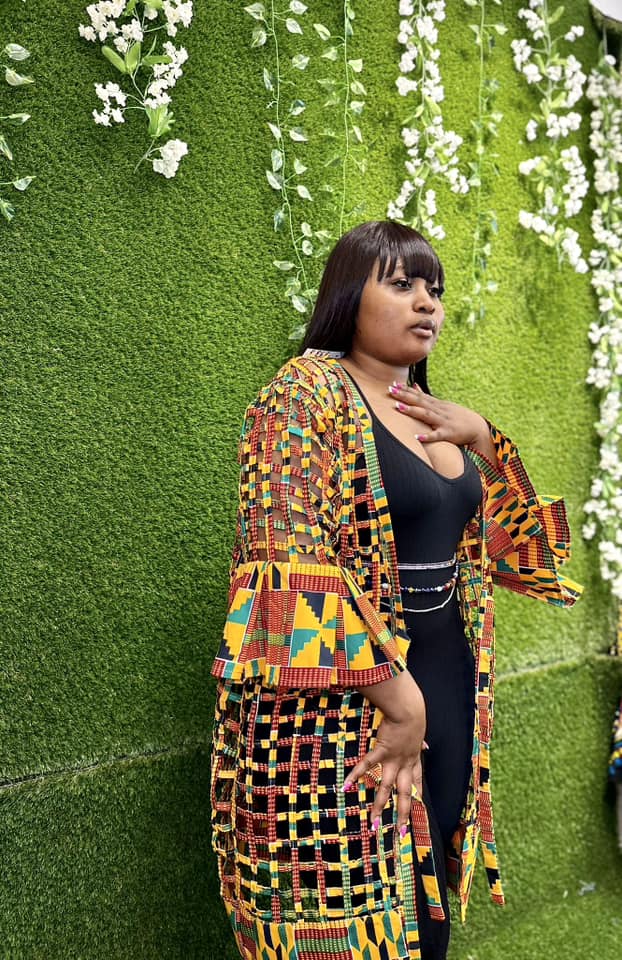
Anita:
Originally, the mall was it. I think it was last year, and this year, starting from Black History Month, we visited schools and colleges. We did short seminars, fashion shows… We did some musical drama and storytelling. We taught them about Africa, the colors, and everything. We’re spreading the word out there.
Hadia:
Another part of our vision for the near future is passing down African culture to the next generation. We’re trying to start a program for kids with lessons in dancing, language, and other cultural aspects. This will help us pass down our culture to the next generation.
Additionally, we’ve been supporting orphans back home. There’s this particular orphanage, Grace to Grace Charity Foundation, that reached out to us. Their needs are becoming overwhelming for the owners. Most of these charitable homes are run by compassionate individuals who bring in sick kids and care for them. The need has grown so much that they needed our help. We started with our first shipment. We take donations of all types—food, clothing, personal care items, and cash donations. We’re also helping with their building projects.
Collins II:
And what age group are these for?
Hadia:
It starts from babies to about 21 years old.
Collins II:
So you deal with youth, but it could be anything from education to personal needs?
Hadia:
Yes, exactly. Another thing we’re trying to do is help those who can’t afford college. Some don’t even finish high school. We’re looking at setting up a vocational school to teach skills like bead making. When they make products, we can bring them here, sell them, and support them financially. Any donation would be much appreciated.
Collins II:
In a final word, what would you like to say to the readers of the Anointed News Journal?
Anita:
If you haven’t seen Culture Rocks by Nini yet, take the chance; check us out. There’s plenty to look at. We have a vast selection —clothing, accessories, footwear, headgear and more. We will help you reconnect with your roots.
Follow us on social media (Facebook: Culture Rocks_by Nini & Instagram: @_culturerocks)
We post our events, fashion shows, hair wrap tutorials, apparel tutorials, dance, and more. We also host events here.
Hadia:
We just want to thank the Anointed News Journal for this opportunity. I think this is our first interview of this setting. We’ve had a few bloggers come in once in a while, but this is our first real opportunity. So we thank the Journal for giving the spotlight to small businesses like ours to help promote us. It’s important to support each other.
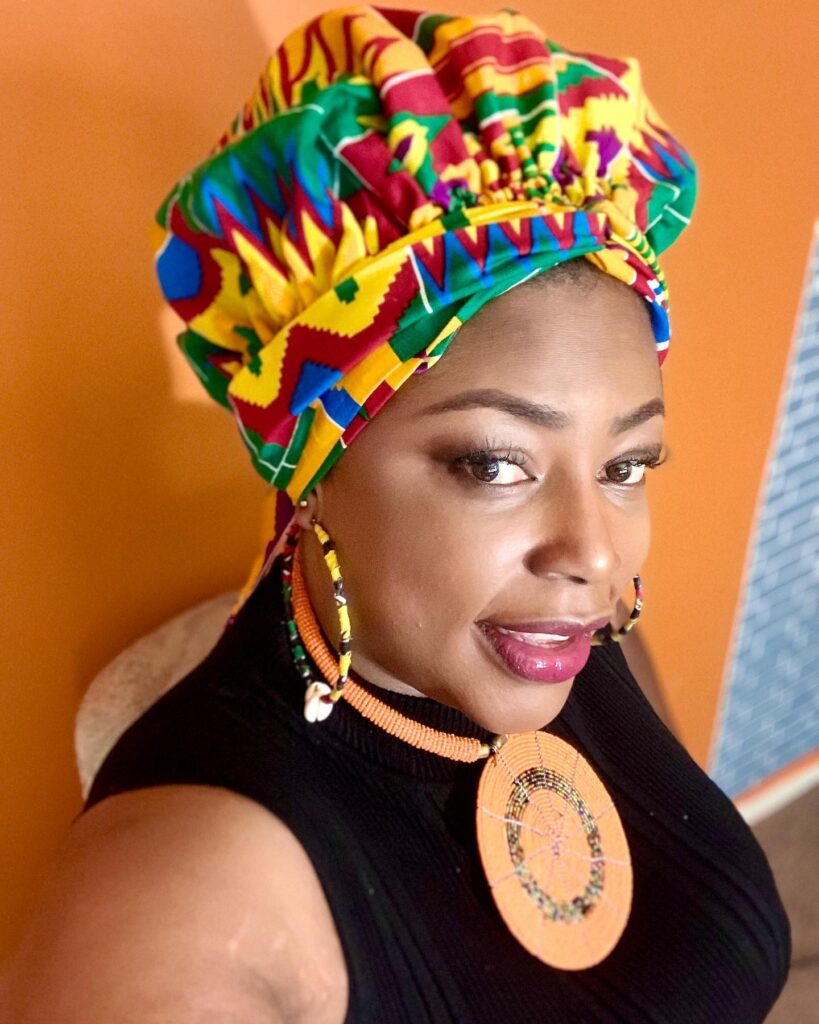
In closing, Culture Rocks by Nini stands as a beacon of cultural celebration and community support, exemplified by their expansion into the community and their commitment to promoting African heritage through fashion and education. Anita and Hadia Barakat’s journey from pandemic-inspired beginnings to a flourishing business underscores the importance of preserving and sharing cultural traditions in a diverse society. Culture Rocks by Nini not only sells products but also creates connections that transcend borders and generations.
By Christopher Collins II

Recent Comments